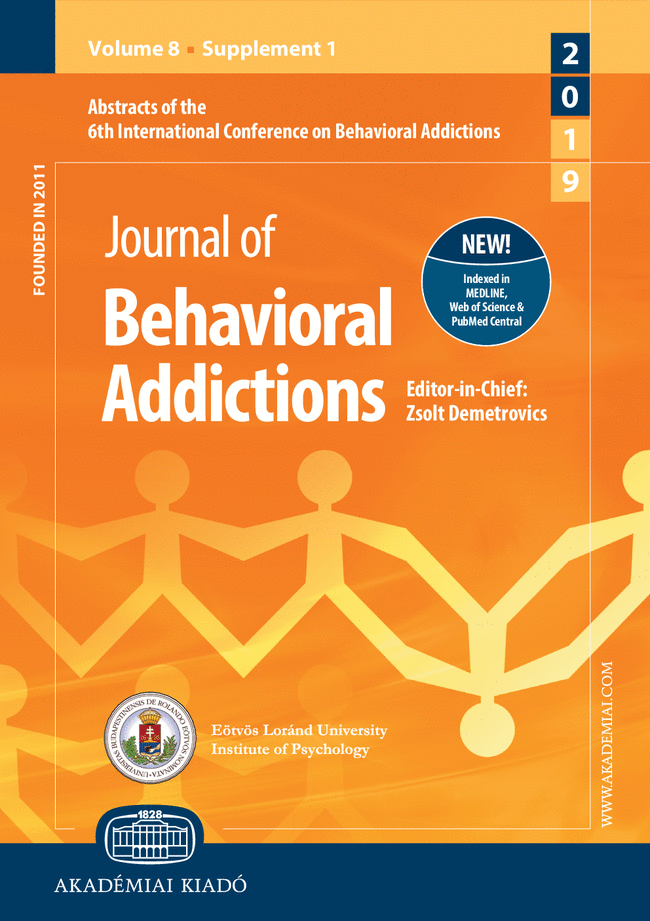Reciprocal relationship between depression and Internet gaming disorder in children: A 12-month follow-up of the iCURE study using cross-lagged path analysis
Reciprocal relationship between depression and Internet gaming disorder in children: A 12-month follow-up of the iCURE study using cross-lagged path analysis
Author(s): Hyunsuk Jeong, Hyeon Woo Yim, Seung-Yup Lee, Hae Kook Lee, Marc N. PotenzaSubject(s): Behaviorism
Published by: Akadémiai Kiadó
Keywords: Internet gaming disorder; depressive symptoms; cross-lagged; cohort
Summary/Abstract: Objectives. Previous studies have reported an association between Internet gaming disorder (IGD) and depression, but the directionality of the relationship remains unclear. Therefore, we examined the reciprocal relationship between level of depressive symptoms and IGD among children in a longitudinal study. Methods. Research panels for this study consisted of 366 elementary-school students in the iCURE study. All participants were current Internet users, so they could be considered an at-risk population for IGD. Self-reported severity of IGD features and level of depression were assessed by the Internet Game Use-Elicited Symptom Screen and Children’s Depression Inventory, respectively. Follow-up assessment was completed after 12 months. We fitted cross-lagged structural equation models to investigate the association between the two variables at two time points contemporaneously. Results. The cross-lagged analysis revealed that level of depression at baseline significantly predicted severity of IGD features at the 12-month follow-up (β = 0.15, p = .003). Severity of IGD features at baseline also significantly predicted level of depression at the 12-month follow-up (β = 0.11, p = .018), controlling for possible confounding factors. Conclusions. The cross-lagged path analysis indicates a reciprocal relationship between severity of IGD features and level of depressive symptoms. Understanding the reciprocal relationship between depressive symptoms and severity of IGD features can assist in interventions to prevent both conditions. These findings provide theoretical support for prevention and remediation plans for IGD and depressive symptoms among children.
Journal: Journal of Behavioral Addictions
- Issue Year: 8/2019
- Issue No: 4
- Page Range: 725-732
- Page Count: 8
- Language: English

